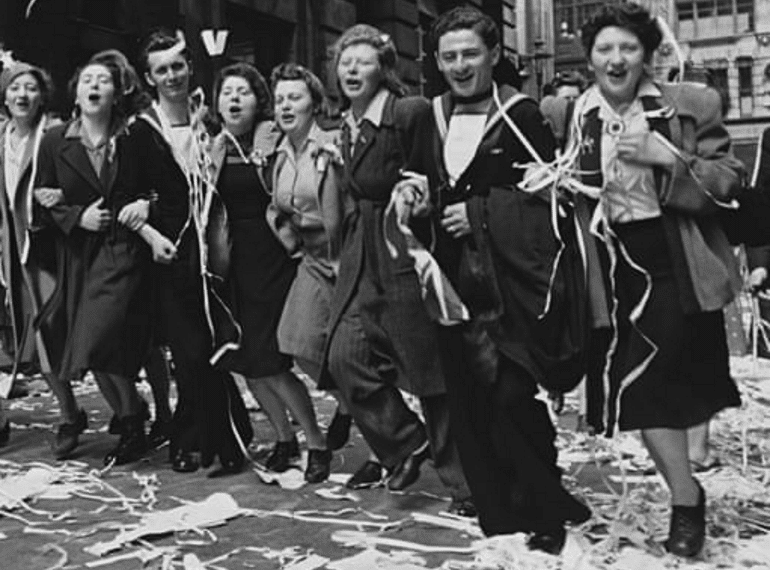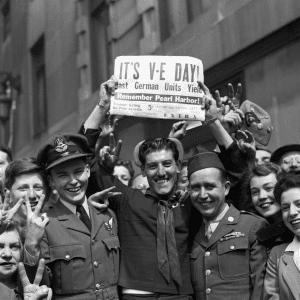
The History department has thrown down a VE Day 75th anniversary challenge to the boys: recreate one of the famous photographs from the celebrations marking the end of European hostilities in World War II.
 The dedicated VE Day page in the eQE History section suggests pupils can perhaps: get their family involved; bring in some suitably evocative props; use their computer skills to convey a party atmosphere, or even give their image a clever modern twist.
The dedicated VE Day page in the eQE History section suggests pupils can perhaps: get their family involved; bring in some suitably evocative props; use their computer skills to convey a party atmosphere, or even give their image a clever modern twist.
The page includes a range of suitable images to replicate as well as links to information to find out more about VE Day, and, for those whose talents are more culinary than photographic, another suggested activity: boys are urged to try baking or cooking, using a recipe of that period, when food rationing was in place.
In addition, the page features an interview with Old Elizabethan Ken Cooper, who was a pupil at QE from 1942 until 1950.
“I joined the School in September 1942, by which time I and my peers had lived through the 1940-41 Blitz on London. We had grown used to nightly air-raids and during one of these in 1941 a bomb had hit the School and destroyed the refectory. This meant that we not only assembled in Hall at the start of every school day, but also returned there for lunch. We sat in our Houses at long tables, one for juniors and one for seniors, with the Housemaster seated at the end of the senior table. This gave a good sense of togetherness, but the food was abominable….potatoes nearer black than white and meat as hard as leather, often lined with colours suggesting it was more suitable for animals than for humans.
 “When the sirens went during school hours, we left the classroom and sat in the corridors with our backs to the walls for our lessons. There was a small air-raid shelter on the old Gun Field, but it was always full of water and never used during my time. There were no after-school activities; when the bell went, we had to head for home in hope of making it before the next air raid.”
“When the sirens went during school hours, we left the classroom and sat in the corridors with our backs to the walls for our lessons. There was a small air-raid shelter on the old Gun Field, but it was always full of water and never used during my time. There were no after-school activities; when the bell went, we had to head for home in hope of making it before the next air raid.”
Although he cannot remember taking part in any VE Day events at the School, he adds: “I well remember the street parties where we all sat at tables in the middle of the road, celebrating with whatever food and drink we had and giving thanks that six years of war with the Nazis were over.”
